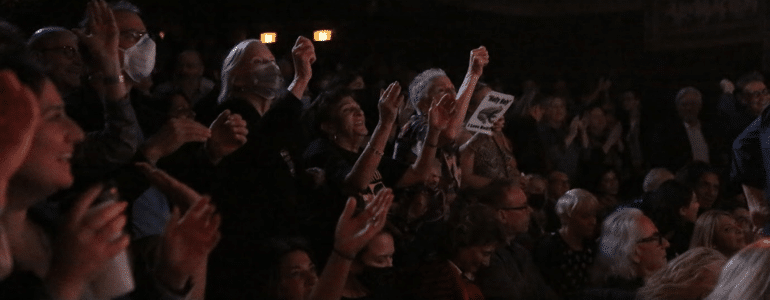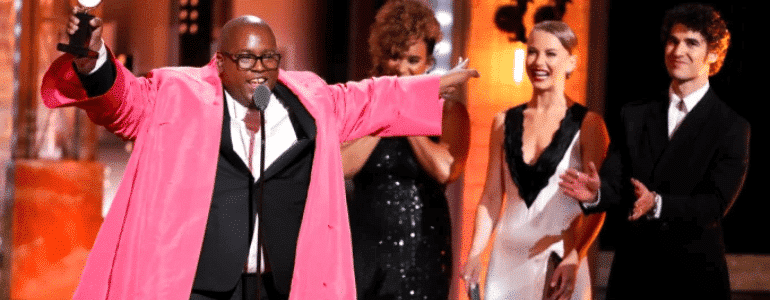GUEST BLOG: So, What Does a General Manager Do, Anyway?: Part Two by Peter Bogyo
More than any other function, a GM’s primary responsibility is that of financial overview – the quantification, management, and forecasting of the show’s finances. During the production period, this involves keeping track of estimated budget expenses as they become actualized, and determining the net effect of all those variances on the budget’s reserve fund, which needs to be available not only by the first preview but also as of Opening Night. A cash flow chart is most useful for tracking these expenses.
At some point several weeks prior to the first preview, I will also begin reviewing the breakdown of advance sales, on a week by week, performance by performance, basis. By analyzing this, one can quickly see if a show is likely to break even in a given week, or which future performances may need some help – either thru additional paid advertising, marketing promotions, increased publicity, sending tickets to the same day, half-price ticket booth, or, last resort, by discreetly offering complimentary seats to carefully targeted audiences.
A helpful tool for predicting future weekly grosses is a ten week out gross projection chart. Essentially, the data from weeks that have already played out and their advance sales (broken down on a week-by-week basis leading up to the final week itself (six weeks out, five weeks out, etc.)) are used to forecast how a future week will perform.
Another statistic that is looked at constantly and minutely dissected is the daily wrap, a figure representing the total amount of ticket sales sold on a given day from all sales sources (box office window, telephones, internet, remote outlets). A wrap is broken down into all the possible types and prices of tickets that comprise it – full price, premium seats, group sales, coded discounts, etc. It shows you how well (or not!) different types of tickets are selling.
Budgets, cash flows, weekly advance breakdowns, gross projections, daily wraps – these are just some of the myriad financial reports that producers look to the general manager to provide them with. Providing all this information and analysis is the major part of the GM’s job. If a GM’s first duty is telling a producer how much a show will cost, one of his last duties is recommending that the show should close. This is not a pleasant task, but more than anyone else, the GM must be grounded in reality when reserve funds are dwindling and losses are looming. I like to joke that the main arc of a general manager’s job can be summed up with “This is what it’s going to cost; now it’s time to close.”
A play goes thru different stages in its life. Up till now, I have only discussed the earliest phases. But there are also important concerns a GM grapples with related to maintaining a healthy show, grappling with a declining show, closing a show, and tending to the ongoing affairs of a show in its life after Broadway. I discuss these at great length in my book, but unfortunately don’t have the space here to go into detail.
A GM has a symbolic, as well as a practical role – he or she serves as a kind of figurehead or leader, representing both the producer as well as the production on many different levels. A GM sets the tone of the working environment that is the show experience, both personally in his own office, and, by proxy, through the demeanor of the company manager who is the producer and GM’s daily representative at the theater
Finally, a GM performs a very important psychological role – his or her relationship to the producer is an intense one, full of confidences and trust. At various times, a GM serves as an advisor, a confidante, a therapist, a father confessor, a support, a protector, a cohort, a fixer and a bad cop to the producer’s good cop. The two parties typically speak on the phone and/or email each other many, many times a day, every day. Most producers feel they need access to their GM whenever anything important or urgent occurs, no matter how early or late the hour, or whether it is a weekend or a national holiday. As previously stated, one is on call 24/7.
General managing a production in the commercial theater entails grappling with an enormous number of complex, exciting, and challenging details. Not to mention some pretty colorful individuals! All these concerns and personalities need to be managed by an experienced, discerning professional. I hope, by now, you have been demystified as to what a general manager does, and can appreciate just how invaluable he or she can be for guiding and protecting both a producer and the multi-million dollar venture that is a Broadway show today.
For further information on me or my book, please visit www.broadwaygeneralmanager.com
_______________________________________________________________________________________________________________________________________________________
PETER BOGYO is a theatrical General Manager, Executive Producer, Producer of Special Events, and an Author.
On Broadway, he served as General Manager of LOVE LETTERS, starring Mia Farrow, Brian Dennehy, Carol Burnett, Alan Alda and Candice Bergen; THE TRIP TO BOUNTIFUL, starring Cicely Tyson, Vanessa Williams and Cuba Gooding Jr.; STICK FLY, starring Dulé Hill, directed by Kenny Leon, TIME STANDS STILL, starring Laura Linney, directed by Daniel Sullivan, AMERICAN BUFFALO, starring John Leguizamo, directed by Robert Falls, A MOON FOR THE MISBEGOTTEN, starring Kevin Spacey and Eve Best, directed by Howard Davies, THE BLONDE IN THE THUNDERBIRD, starring Suzanne Somers; SLY FOX, starring Richard Dreyfuss, directed by Arthur Penn; FORTUNE’S FOOL, starring Alan Bates and Frank Langella, directed by Arthur Penn, and VOICES IN THE DARK, starring Judith Ivey, directed by Christopher Ashley.
Off-Broadway, his general manager credits include A MOTHER, A DAUGHTER, AND A GUN with Olympia Dukakis; Elaine May’s ADULT ENTERTAINMENT, directed by Stanley Donen; Jerry Herman’s musical revue SHOWTUNE; MR. GOLDWYN, starring Alan King, directed by Gene Saks; MADAME MELVILLE starring Macaulay Culkin and Joely Richardson; and THE UNEXPECTED MAN, starring Alan Bates and Eileen Atkins, directed by Matthew Warchus.
He has served as Executive Producer for the sold-out Carnegie Hall concert PIAF! THE SHOW, and for FIGARO 90210 at the Duke Theater on 42nd Street.
Peter is also a leading producer of benefit concerts and has raised close to a million dollars in the fight against AIDS. For GMHC he produced the celebrated concert versions of Stephen Sondheim and Arthur Laurents’ ANYONE CAN WHISTLE and Cole Porter and Moss Hart’s JUBILEE, both at Carnegie Hall, and SHOWSTOPPERS!: a Salute to the Best of Broadway, at David Geffen Hall at Lincoln Center. He also produced FIRST LADIES OF SONG at Alice Tully Hall for the Eleanor Roosevelt Monument Fund, which featured Rosemary Clooney, Marilyn Horne, Judy Collins, Barbara Cook, Lena Horne, Joanne Woodward, and Hillary Rodham Clinton.
He has unveiled three monuments for the City of New York, honoring Eleanor Roosevelt, Duke Ellington, and Antonin Dvorak, produced a memorial tribute to Herbert Ross, and oversaw the international entertainment for philanthropist George Soros’s 75th birthday party.
Peter is a member of The Broadway League and ATPAM, a Tony Award voter, and a graduate of Yale College and of the Commercial Theater Institute. His book, “Broadway General Manager: Demystifying the Most Important and Least Understood Role in Show Business” is published by Allworth Press, and received critical acclaim.
Peter lives in Manhattan and upstate New York with his wife Ahna and their Scottish terrier Dickens. www.peterbogyo.com
Podcasting
Ken created one of the first Broadway podcasts, recording over 250 episodes over 7 years. It features interviews with A-listers in the theater about how they “made it”, including 2 Pulitzer Prize Winners, 7 Academy Award Winners and 76 Tony Award winners. Notable guests include Pasek & Paul, Kenny Leon, Lynn Ahrens and more.













